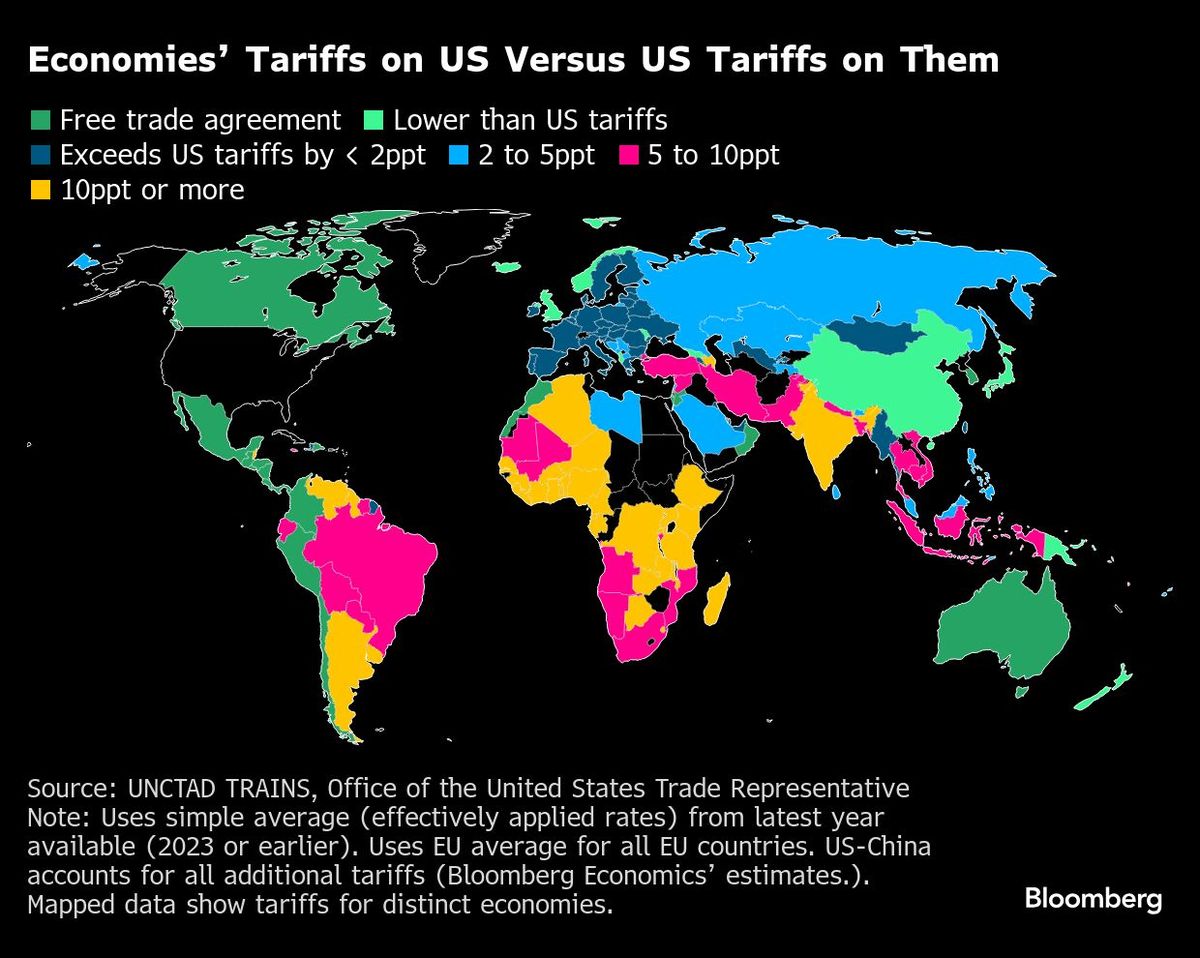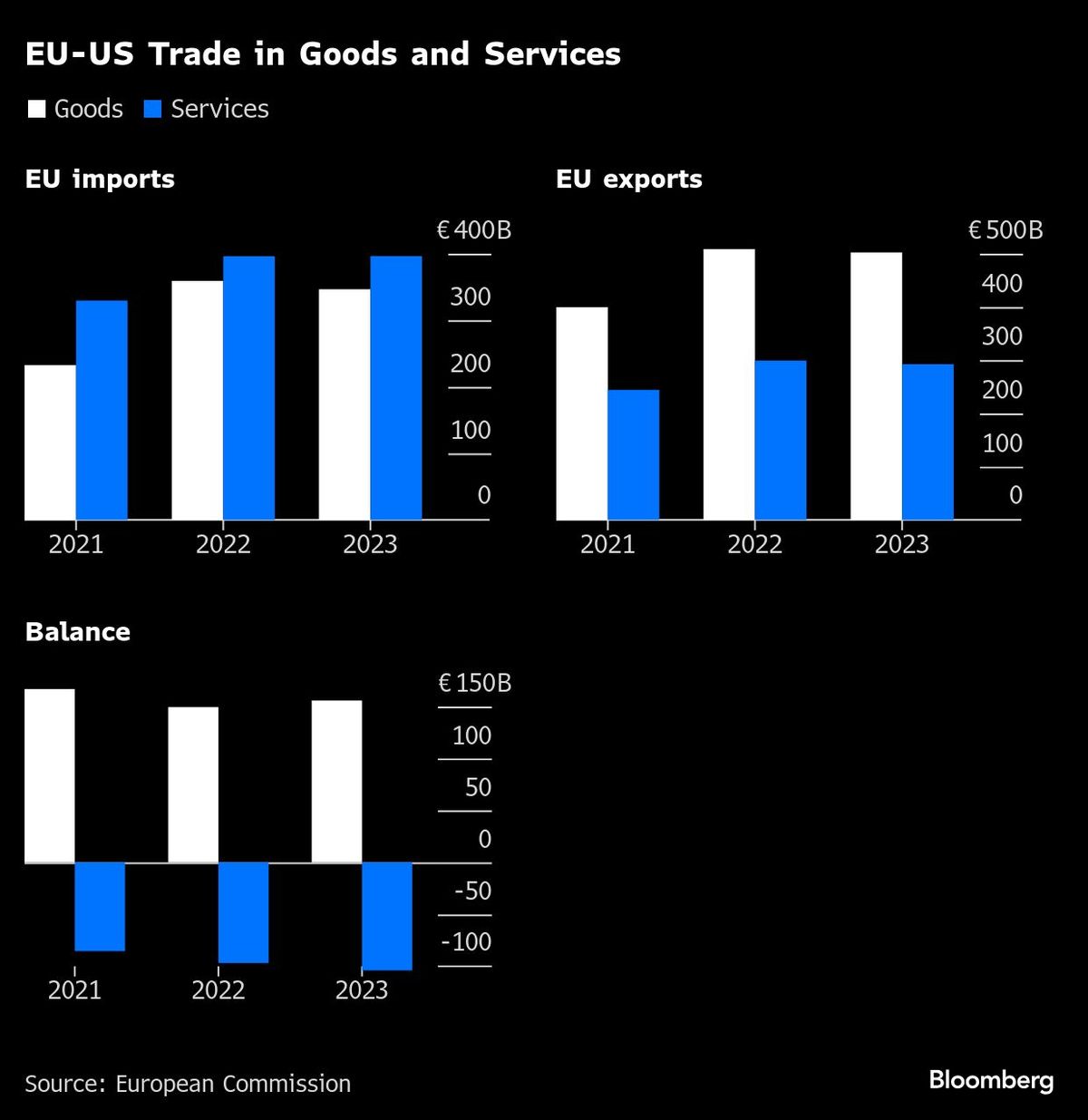
The European Commission is said to be working on short-term economic support proposals to go alongside plans to advance reforms and competitiveness in key sectors as well as to improve the functioning of the bloc’s single market.
(April 3): The European Union (EU) is preparing a package of potential emergency measures to support parts of its economy that could be hit the hardest by US President Donald Trump’s sweeping tariffs, according to people familiar with the matter.
The European Commission, the EU’s executive arm, is working on short-term economic support proposals to go alongside plans to advance reforms and competitiveness in key sectors as well as to improve the functioning of the bloc’s single market, said the people, who spoke on the condition of anonymity.
Trump is set to announce so-called reciprocal tariffs later on Wednesday to strike out against what he considers to be unfair levies on US goods as well as non-tariff barriers, such as domestic regulations and how countries collect taxes, including the bloc’s value-added tax, digital taxes and regulations. The EU says its VAT is a fair, non-discriminatory tax that applies equally to domestic and imported goods.
Any potential EU support measures will depend on what the US announces, one of the people said.
German bonds erased gains after the report, with the 10-year yield trading stable on the day at 2.69% after falling to as low as 2.65%. The euro extended gains to 0.4%, reaching an intraday high of $1.0839.
A spokesperson from the commission declined to comment.
The US hasn’t indicated the exact scope of the measures nor the tariff level it will apply on the EU but officials in the bloc expect the rate to fall anywhere between 10% and 25%. Details of the plans were still in limbo on Tuesday, Bloomberg reported earlier.
Trump has already declared a 25% import tariff on steel and aluminium as well as on cars and some auto parts. The EU announced a set of countermeasures of up to €26 billion (RM124.56 billion) in response to the metals duties, which are expected to enter into force in mid-April.
Trump has said he’ll impose other sectoral duties on products including lumber, pharmaceutical goods and semiconductors.
European Central Bank (ECB) president Christine Lagarde told the European Parliament last month that blanket 25% tariffs on Europe would lower euro-area growth by about 0.3 percentage points in the first year, with additional damage possible if the EU retaliates. According to Bloomberg Economics, as much as 2% of economic output is at risk in the medium term.
But with the impact on inflation less clear, many ECB officials haven’t committed to any outcome at their next policy meeting on April 17, even as inflation continues to near their 2% target. Several policymakers are still wavering on whether to cut rates for a seventh time, keeping the option of a pause on the table.
Germany is most heavily exposed to Trump’s actions due to its €92 billion trade surplus in goods with the US in 2024, according to Eurostat. Its flagship car industry is particularly in focus, compounding the sector’s struggle with a worsening position in China and the transition to electric vehicles.
The EU is not expected to retaliate immediately to the new tariffs, as the bloc will need time to fully assess what Trump ends up doing before proposing how to respond.
However, Commission President Ursula von der Leyen has previously said the EU “holds a lot of cards”, including retaliatory tariffs and targeting American services and technology companies.
The EU is working in parallel on a “term sheet” for talks with the US after Trump’s latest tariffs come into force, which will set out areas for negotiations on the punitive trade measures, including lowering its own duties, mutual investments with the US as well as easing certain regulations and standards.
Uploaded by Felyx Teoh
- Trump hits China tariff retaliation, says policy will remain
- China retaliation on US farm goods hits soybeans, bolstering Brazil
- Wall Street rout drags Nasdaq near bear market
- Axiata, Malaysia Smelting Corp, Lianson Fleet, Radium Development, Mr DIY, KKB, Ho Hup
- ‘Worst-case scenario’ for tech wipes $1.4 trillion from Nasdaq
- LTAT moving forward despite challenges
- ‘Worst-case scenario’ for tech wipes $1.4 trillion from Nasdaq
- Anwar says impact of latest US tariff on nation's economy still being assessed
- Tok Mat, Rubio discuss bilateral relations, Asean-US Special Summit date
- US solar’s hoarding habit will help blunt sting from Trump tariffs


